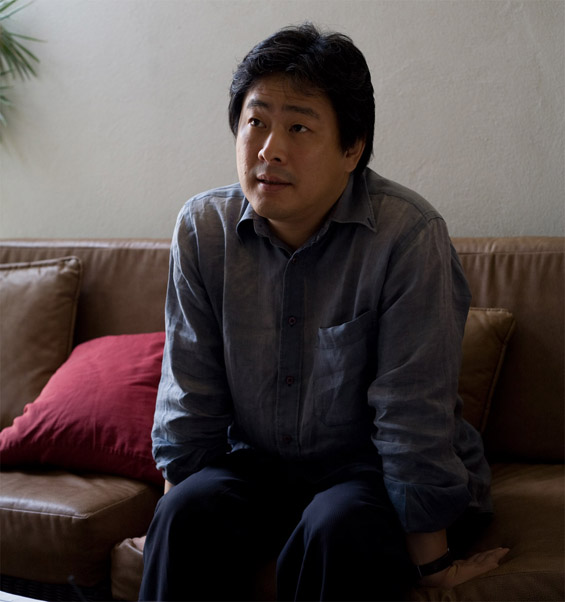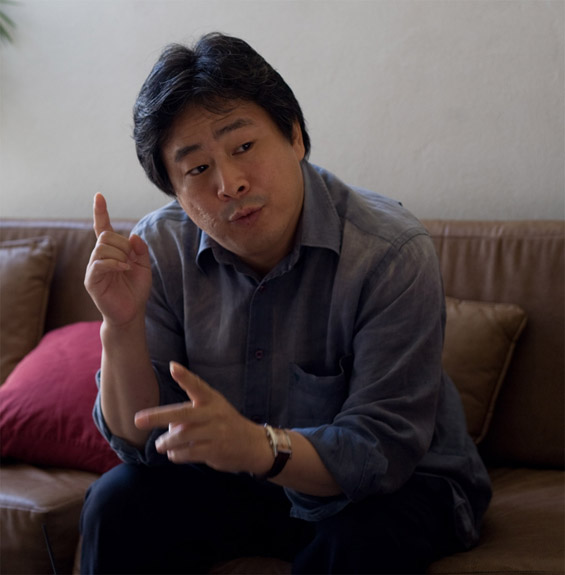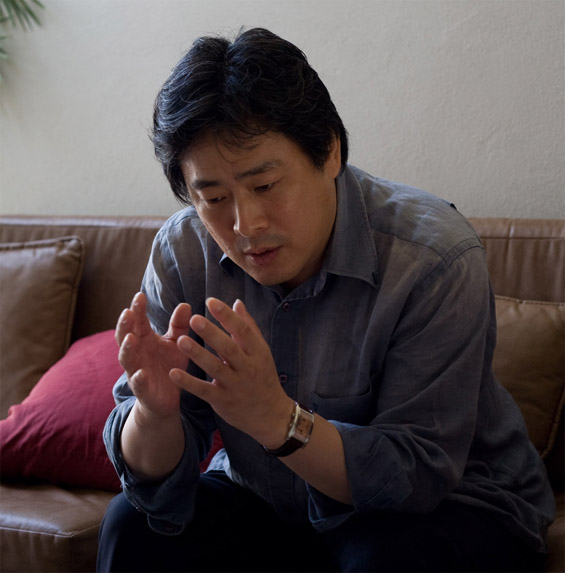Hey folks. Capone in Chicago here, with an interview I picked up at Comic-Con a couple weeks back, but wanted to hold onto until the film THIRST was making its way into a wider variety of theaters, which it is this weekend. The interview is with a masterful director named Chan-wook Park, and if all I told you about him was that he directed OLD BOY, that would be enough.

Capone: I loved THIRST immensely. Obviously, there are no shortage of vampire films in the world. What did you hope to bring to the vampire lore? And, what rules did you set for yourself about things you would and would not do within the vampire structure?
Chan-wook Park: It may sound like a joke to you, but, seriously, the beginning of this was something very simple. I had the idea of telling a story about a Catholic priest first, so in having him turn into a vampire…If he had a fear of the cross, or the crucifix, it just wouldn’t make the rest of the story viable at all. So, actually, I had to get rid of that convention. And also, in Korea, all the food that you eat has garlic in it. They put garlic into everything in Korea. So, if you’re scared of garlic, there’s no drop of blood you can feed on in Korea.
So, taking away these clichés, these conventions one by one…Since these two had to go at the beginning, I got to thinking, Why not take out more, as much as I can? And, not only did it not make less sense, even after I took the conventions away, it still made sense as a vampire film. And, not only that, but it actually exposed the true nature of vampirism. I was able to deal with the essence of vampirism better by taking away all these conventions. And also, another thing that I wanted to set out to do was to try and create the most realistic vampire film in the history of cinema. So, with that objective in mind, this worked very well. And, taking away all this mysticism from the vampire tradition, taking the curtain away, as it were, that shrouded vampirism, it was left with only the core essence of vampirism to deal with the true nature of vampirism.
Capone: I know that you have said before that you like to destroy genres that you work in. I guess this would qualify, correct?
CwP: [laughs] Well, rather than use the extreme expression and say “I’m the destroyer of genres”…How can I destroy the whole genre by my lonesome? It’s probably impossible, but rather, I would like for you to call to mind this line of dialogue from the film where Tae-joo says to Sang-hyeon, “You are a germ.” And, much in the same way, in the world of genres, as somebody who’s only miniscule in terms of size of influence, I would like to consider myself as a germ who enters into the system of genres and creates changes, or changes the DNA or the makeup of the genre in some way, and causes this genre to become sick.
Capone: By making the lead character a Catholic priest, you invite discussion of the nature of guilt. He clearly feels very guilty about what he’s doing. And, yet, as the film goes on, he sort of systematically breaks all of his vows and every commandment. Please talk about the theme of guilt.
CwP: The funny thing is after he becomes a vampire, the way he does all these bad things becomes more visible, but even before becoming a vampire, this priest had some problems. He did have some issues. Now, he’s a priest who works at a hospital, looks after all these patients, but he’s not able to give them any real help. And, his attempts at trying to help them always turn out to be futile. And, all he can do is step back and pray for these patients. And, that’s why he comes to doubt his own faith and doubt himself. And, he starts to play with the idea of killing himself. In the confessional, he is actually advising against self-hatred or self-loathing or committing suicide, but when he’s doing that, he’s actually talking about himself as well.


-- Capone
capone@aintitcoolmail.com
Follow Me On Twitter




